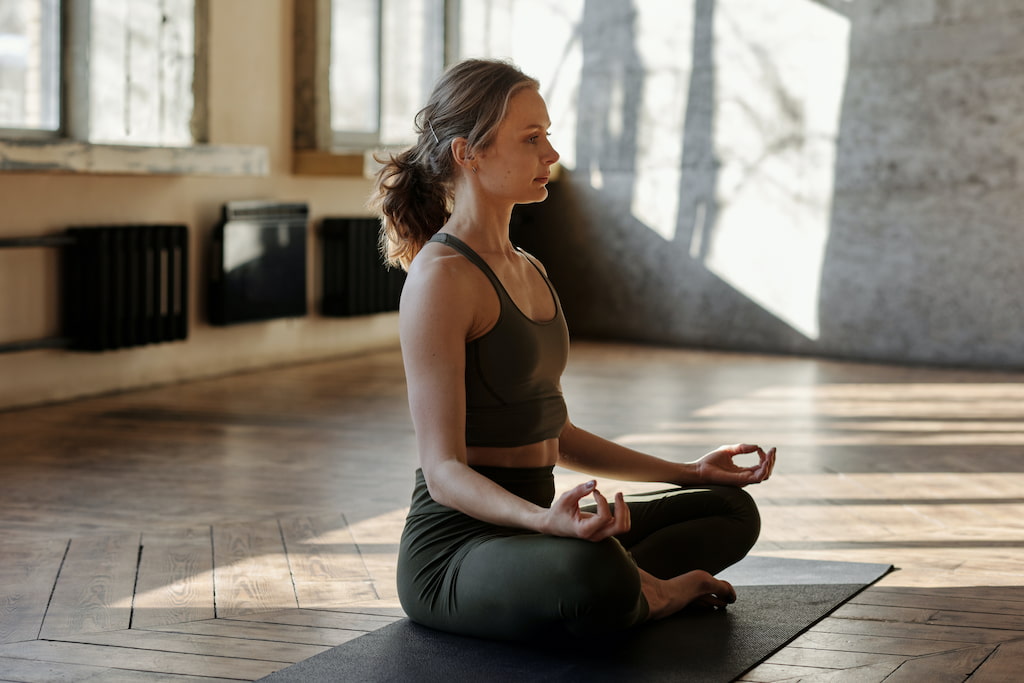How Long Does It Take for Meditation to Take Effect?

Contents
So, you’ve finished your first meditation. How did you feel afterwards? Most of us experience things like a sense of calm, relaxation, or a surge of compassion. The funny thing is, meditation doesn’t bring these emotions and sensations to us from the outside in. It does so by making us aware of emotions and sentiments buried deep within ourselves; ones we might have even forgotten. That is to say, our minds are so busy throughout the day that sometimes we forget to feel these emotions. We’re rushing about from the moment we wake up and our minds are so overcrowded that our thoughts blind us to our emotions. But meditation enables us to experience them again, even if it’s only a little bit at first. If we want to experience more, we have dig deep, and explore our own depths.
Now, it’s possible that you didn’t experience these emotions very clearly yet. You may therefore have certain questions and be experiencing some confusion. Just know that, that’s perfectly normal. This is your first time trying a new practice, afterall. Expecting to see its impact immediately after your first practice may be a bit unrealistic. And yet, most of us have this exact expectation. We sit there for a few seconds after our first meditation, waiting for the lightbulb moment or to be overcome with an overwhelming sense of calm. We go into meditation with a cloud of expectation hovering over us and when our expectations aren’t met, we’re disappointed. Some of us even decide that meditation doesn’t work for us after just a few weeks.

The overnight meditation magic is a false hope
Odds are, you had some sliver of expectations similar to what we just described, and you were expecting to feel different and perhaps renewed right after the first meditation. Maybe you were expecting to see your anxiety levels drop immediately or feel more compassion and understanding for those who normally bother you. Perhaps you thought your focus would improve or that you would feel more capable of managing the stress you feel from work. But after the first few meditations, you still haven’t noticed any visible changes. Because of this, you may think that meditation is only good for providing momentary relaxation. Or you may not have even experienced that temporary relaxation because just sitting still was making you feel too antsy and restless. Racing thoughts, resisting the urge to open your eyes or reach for the closest distraction—all of this is perfectly normal during your first few weeks of meditation.
What science has proven about meditation
Meditation is often perceived as a pain reliever that provides temporary relief, yet that’s not the case. Meditation is a practice that has both short and long-term effects. Some of us may not notice these effects immediately after meditating for the first time, but scientific studies prove that as we continue to meditate regularly, our minds begin physically changing from our very first practice.
A study done at Yale University last August, for instance, was able to analyze the brains of its participants and detected an immediate difference in brain activity after just one practice. This isn’t the only study that has been conducted on individuals who tried meditation. Another study, published in the Frontiers of Neuroscience demonstrates the beneficial effects of meditation on our minds. The study shows that these effects take place the minute we start our very first meditation practice.
Your First Short Practice Strengthens Your Cognitive Abilities
As mindfulness meditation became a bigger trend in pop culture, an increasing number of scientists have begun researching the practice more and more. Many scientists began studying the positive effects meditation had on our cognitive abilities and our ability to focus. For instance, a study by the Catherine Norris & Hedy Kober team demonstrated how 10 minute-long meditations affected participants who had never meditated before.
For their research they divided 40 participants into 2 random groups of 20. One group did a 10-minute-long mindfulness meditation. The other group listened to a National Geographic article that was written in the same style. Following these sessions the two groups were given simple mental tests.
The quality of focus improves with your first meditation
According to the study, the group that did a 10-minute meditation did much better on tests centered on awareness and focus. They also proved to be better at directing their focus after meditating.
This finding is crucial, principally because it proves that our first ever meditation is beneficial for us, even when we don’t notice its benefits. In other words, it shows that meditation takes effect the minute we sit down for our practice.

What kind of effects are we really talking about?
Okay, so our brain starts to change after just one practice, but what positive impacts can we hope to experience over time? Well, in the first stages of practicing meditation, small changes will begin to take place in our prefrontal cortex and limbic system. Gradually, meditation increases the mass of grey matter in our brains thereby improving performance-based qualities such as focus.
Put bluntly, meditation is not a vehicle that will transport you to a magical realm the minute you try it. Yet with time and consistency, you will absolutely begin to notice its impact on your overall demeanor, perspective, and physical state. You’ll begin to feel more clear and centered, and less bothered by what used to anger and annoy you. Meditation invites more tranquility and calmness into your life, that is the more that you do it. Like exercising, it’s also a practice that you have to continually engage in, in order to see permanent change and improvements.
This is precisely why it’s important that we trust in our meditation practice and make room for it in our lives, even if it’s just for 10 minutes per day. Allowing ourselves to stay in this meditative space while keeping realistic and patient expectations for ourselves will help us attain a much clearer and more fulfilled mindset.
With the overwhelming evidence as to its benefits, it’s worth trying to sit down and meditate for at least 2-3 times a week. Over time, you’ll begin to see the positive effects it’s having on your mind, as well as your body.
Are you ready to patiently walk down this path and make it a permanent part of your life? Are the challenges we’ve talked about something you’ve experienced before? What were your first experiences with meditation like? We’d love to hear your story!


